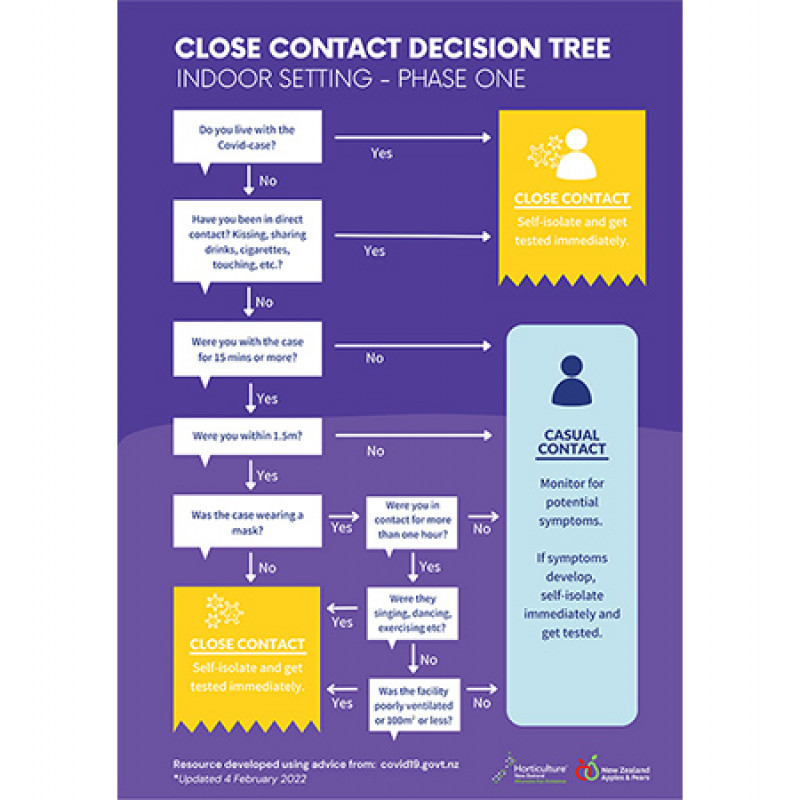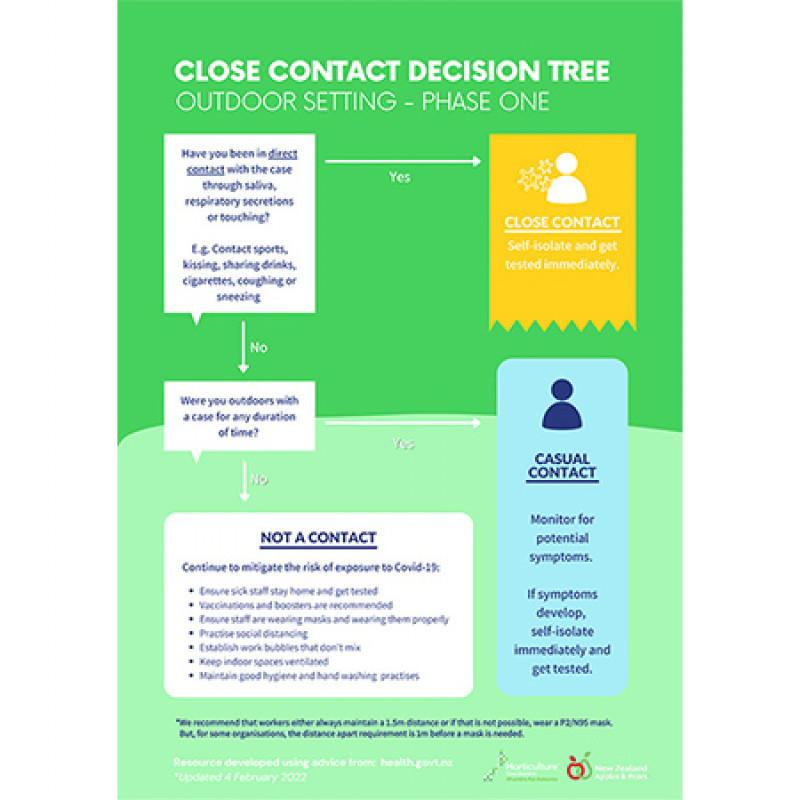What to do if you have a case of Covid in your orchard or packhouse
The advice that follows has been put together so that growers and packhouse operators are clear about the first steps they should take if they have a case of Covid in their orchard or packhouse.
This advice has been reviewed by the Ministry for Primary Industries.
Please keep in mind that the actions taken at the start could have a major impact on the individual operation, if not the industry.
What to do:
Health response
On identification/notification of a positive case within the workplace, you should immediately:
- Determine whether contacts within the positive worker’s work group or bubble are close, casual plus or casual contacts.
- For example, if work bubbles can be physically distanced, wear masks, and are in large enough, well ventilated buildings, it may not be necessary for all people in the bubble to do this. This is particularly true for people who work outside who will be considered casual contacts. Casual contacts to a case should monitor their symptoms. If they develop symptoms, they should not go to work, self-isolate and get a test. See here for Ministry of Health advice on contacts.
- Close contacts (including not vaccinated or not fully vaccinated casual plus contacts in the infected worker’s work group) must self-isolate at home or in their worker provided accommodation, get a COVID-19 nasopharyngeal swab/PCR, and self-monitor for symptoms for 10 days.
- Remember that a case’s infectious period is from 48 hours before the first symptoms appeared. If the worker does not have any symptoms, they should be considered infectious from 48 hours before they received their positive test result.
- Contact the Healthline and local Public Health Unit and follow their instructions.
- Communicate with the National Investigation and Tracing Centre (NITC) to provide details of visitors that may be close contacts.
- Follow the business contact tracing procedures to identify other affected workers that may require follow up according to the Public Health Unit advice.
Please remember to communicate at least daily with the isolating workers and the rest of your staff.
Rapid Antigen Tests may be used by the company to screen other workers as a precaution but should not be used as a substitute for stringent physical control measures such as wearing masks, temperature checks and physical distancing.
Business response
You should immediately:
- Isolate the part of the orchard or packhouse that the worker was in. Secure any CCTV footage as well as all records of entry and exit, and testing (temperature checks, etc).
- In terms of the packhouse, commence deep cleaning.
- Call your product group for advice. Your product group will work with you to decide next steps. Your product group will inform the Ministry of Primary Industries, which will in turn provide advice.
- Direct any media enquiries to your product group or HortNZ (Andrew Bristol, phone 021 021 62 021) so that the response can be managed on behalf of the whole industry.
How to determine a close contact
Determining who is a close contact differs between indoor and outdoor settings. Also, the use and type of mask appears relevant to the definition of a close contact.
The two flow charts below have been put together to help determine close contacts at Red.
Please note that the flow charts below are an analysis and interpretation done in good faith of what is sometimes differing advice. Individual District Health Boards (DHBs) may interpret the Government’s advice differently. Therefore, we recommend speaking with your local DHB for endorsement of individual protocols and plans.


